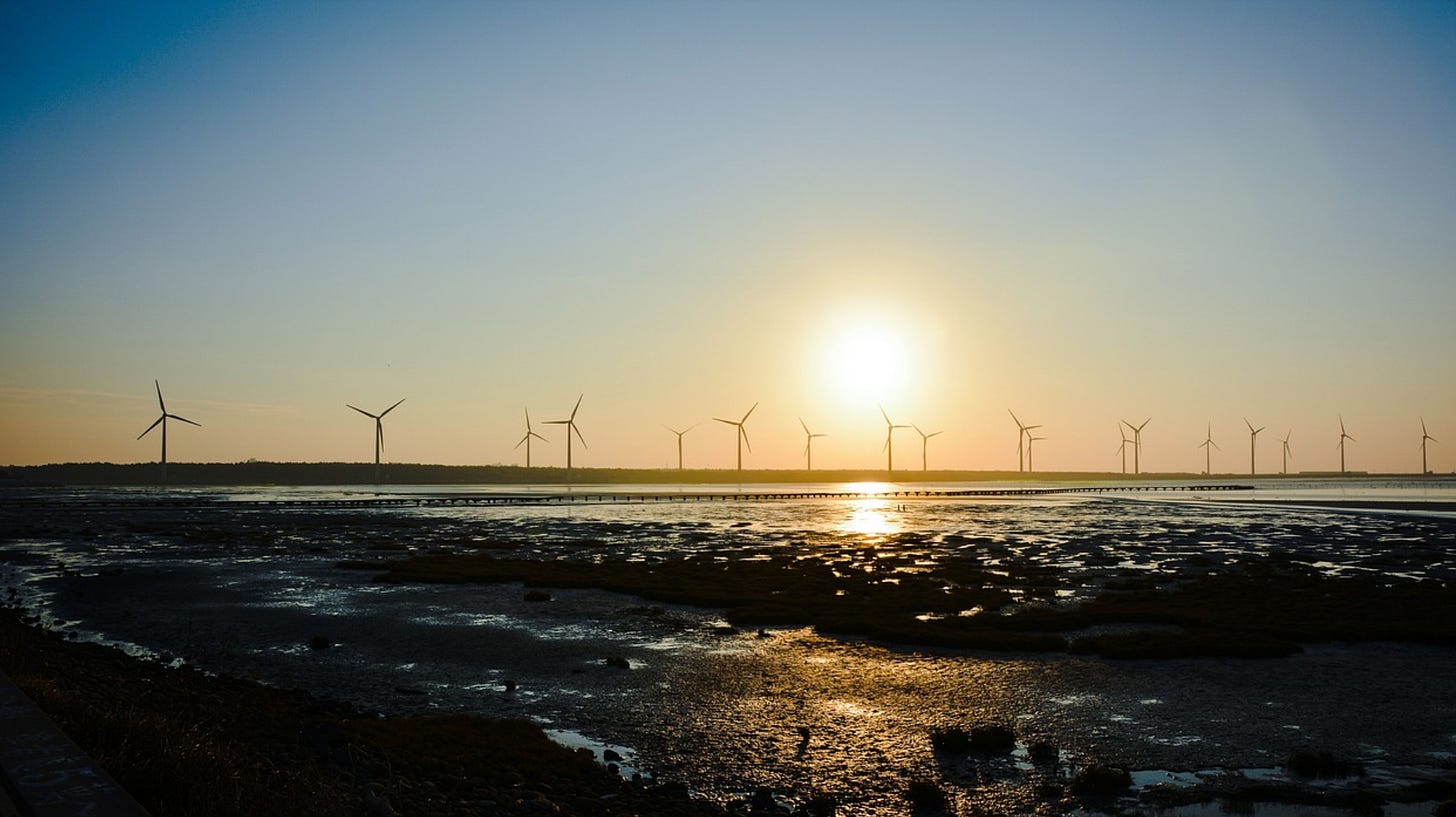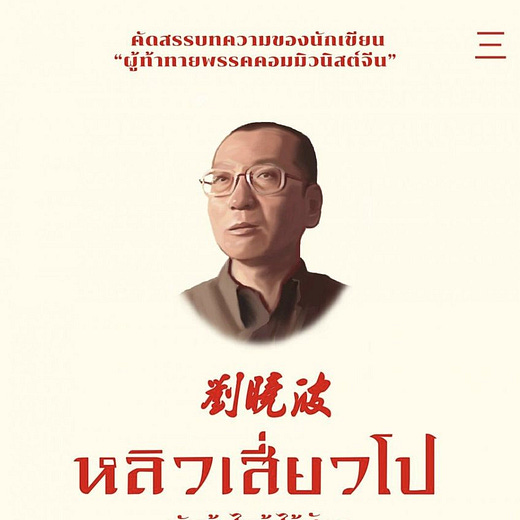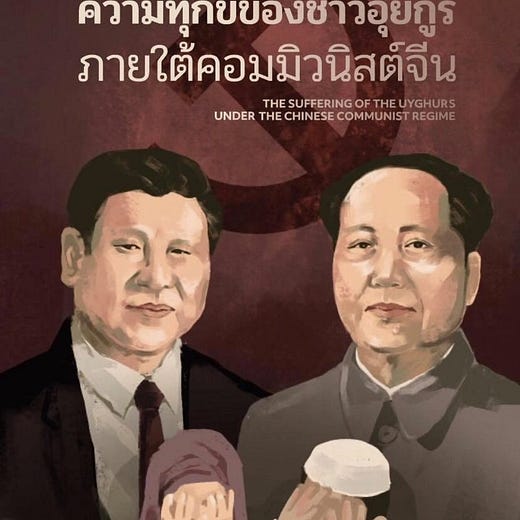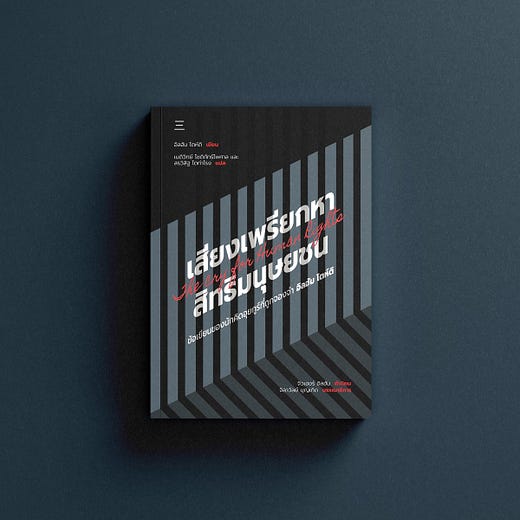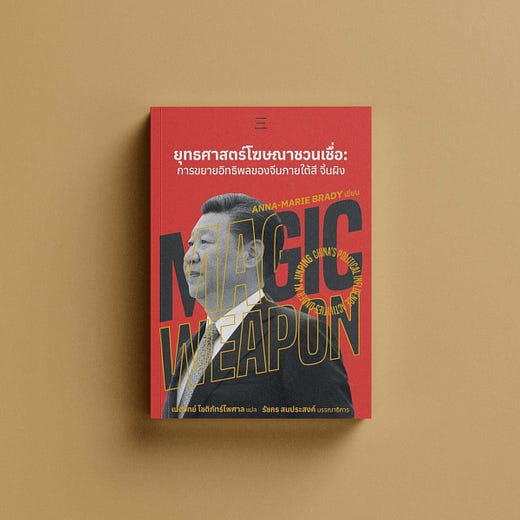Xi lineup roils markets
Given the party secretary's record so far, the latest small band of "yes men" signal a "no" to investors
The Chinese yuan is in free-fall and the markets are jittery about the new-look ideology-before-business leadership team.
The Wall Street Journal reports what we all know – economics is taking a backseat to the upcoming cold war with the US.
Gone from the new leadership are the pro-market pragmatists who for decades helped pilot the country’s integration into the global economy. Instead, Xi Jinping is starting his third term in power with a slate of senior Communist Party apparatchiks known for their loyalty to the supreme leader.
Officials who combined political standing with technocratic skills, a mix that gave them global market credibility, are no longer in the upper echelons of the party, including figures such as Liu He, Mr. Xi’s economic adviser who negotiated a trade deal with the Trump administration, Guo Shuqing, for decades a reform-minded banker and financial regulator, and Yi Gang, the U.S.-trained central-bank governor.
Xi’s speeches evoke recurring motifs of “storms” and “perilous times” and “ideological purity” and “economic resilience” – on the latter, read less dependence on the West, more North Korean-style autarky – as opposed to the bygone mantras of “win-win opportunities.”
It’s as if China has gone, “It’s us against the world!” overnight.
Markets – which are apparently very important, even if very few of us make money from them directly – don’t like that kind of talk and they’ve been tanking since the 20th party congress closed and all the delegates shuffled off to their scattered constituencies and drab offices.
At least China released economic data, which had been unprecedentedly delayed for a week with no reason given.
According to the The National Bureau of Statistics’ third-quarter economic data, GDP increased by 3.9% year-on-year, slightly better than expected, urban unemployment was 5.4% (but a high of 17.9% for 16- to 24-year-olds in September).
Retail sales of consumer goods were down, the lowest since June in what is a generally moribund, stop-and-start – are we in lockdown again? – economy.
Bloomberg reported breathlessly:
A sense of exasperation swept across Chinese markets as [Xi Jinping] moved to stack his leadership ranks with loyalists, with stocks capping their worst day in Hong Kong since the 2008 global financial crisis and the yuan weakening to a 14-year low.
The report blamed “Xi’s power grab” for the “historic market rout.”
Meanwhile, despite the general grimness, some big funds are betting that China is going to retreat from Zero Covid, Bloomberg reports.
It’s a bold bet. ChinaDiction would bet the other way, although it’s likely that some attempts will be made to try and make it easier for foreign businesspeople to enter ring-fenced China and do what they do.
Military reshuffle puts Taiwan in spotlight
Photo: Wang Yu Ching; Taiwan Office of the President.
Following a reshuffle of its top military leadership on Sunday, the day after China’s 20th party congress, Taiwan’s defense minister warned that it would be dealing with a tougher, more modern and more Taiwan-focused Chinese military machine, reports the South China Morning Post.
Minister Chiu Kuo-cheng (Qiū Guózhèng, 邱國正) warned, “It means the [PLA] will adopt a tougher strategy in dealing with Taiwan in the future.”
Among other military changes, General He Weidong, 65, with extensive command experience in China’s Eastern Theater Command (ETC), was made the Central Military Commission’s (CMC), which Xi has led since 2012, second-ranked vice-chairman.
The Wall Street Journal notes:
The party also retained Gen. Zhang Youxia, 72, son of a former general who is widely viewed as a close ally of Mr. Xi.
As The Guardian puts it:
Xi Jinping’s purging of political rivals and elevation of loyalists to the top ranks of the Chinese Communist party has raised fears that his now unfettered and unquestionable power could increase the risk of an attack on Taiwan.
It would be a highly risky initiative – arguably mad – but “some are now questioning whether there is anyone left in the party who could stop him from making a rash move.”
The Straits Times reports that James Char, an associate research fellow at the China Programme at the S. Rajaratnam School of International Studies, said:
Gen He’s promotion will boost the PLA’s “operational readiness for a contingency in the Taiwan Strait”. He pointed out that the PLA’s key strategic focus is Taiwan, which the ETC is largely responsible for.
Another notable addition to the CMC is PLA Army commander, General Liu Zhenli, 58, who – like Gen Zhang – has actual combat experience.
It should be added that General Liu’s combat experience – like Zhang’s – was in the Sino-Vietnam conflict of 1979, which amounted to a number of inconclusive border incursions into Vietnam by China that failed to achieve their objective of persuading the Vietnamese to leave Cambodia and not depose murderous dictator Pol Pot.
The Straits Times notes many other “fresh” military faces, but their appointments provide little in the way of guidance as to China’s immediate military ambitions.
Uyghur Group takes legal action in UK
Turfan street scene, Xinjiang. Photo: Adriaan Terblanche; Unsplash.
A Uyghur organization and a human rights group have accused the British government of failing to block the import of cotton products from the Xinjiang Uyghur Autonomous Region, former East Turkestan, reports the Associated Press.
Tuesday’s hearing at the High Court in London is believed the first time a foreign court hears legal arguments from the Uyghurs over the issue of forced labor in Xinjiang. The region is a major global supplier of cotton, but rights groups have long alleged that the cotton is picked and processed by China’s Uyghurs and other Turkic Muslim minorities in a widespread, state-sanctioned system of forced labor.
The case, brought by the Munich-based World Uyghur Congress and the Global Legal Action Network, a nonprofit, is one of several similar legal challenges aimed at putting pressure on the U.K. and European Union governments to follow the lead of the United States, where a law took effect this year to ban all cotton products suspected of being made in Xinjiang.
Vatican confirms deal with China
The Vatican confirmed over the weekend that it had signed off on a controversial deal with atheist China on the appointment of Roman Catholic bishops, reports Reuters.
It’s the second time the provisional accord has been extended for two years.
According to Pope Francis, it will …
… ease a longstanding divide across mainland China between an underground flock loyal to the pope and a state-backed official church. For the first time since the 1950s, both sides recognised the pope as supreme leader of the Catholic Church.
Hong Kong’s Cardinal Joseph Zen, 90, who is currently on trial over the use of a charity fund for pro-democracy protesters has “denounced it as a sell-out to the communist authorities.”
Power to the person
It’s ‘interesting’ what you can do with AI art. Picture: AISEO ART.
Before we meander off into the greater Sinosphere, where not all that much appears to be happening mid-week either, every seasoned China watcher seems to have been editorially summoned to comment on the riskiness of Xi Jinping accumulating so much power in just two hands – well, and in the hands of buddies who’d never dare to tell him he’s wrong.
It would be soul crushing to try and list them all, but here’s Ian Johnson – whose China writing ChinaDiction immensely likes and respects – blogging on it.
He writes:
The past week's events also reflect what may turn out to be a flawed strategy of Xi putting himself at the center of everything—making him seem strong while actually vulnerable.
It’s a common refrain. Politico, for example, argues that Xi is “weaker than he looks” – basically, the argument runs, insofar as he wants to manage everything that can be managed but mismanages it in the process.
There’s a lot of truth in this. Just for example:
Xi aims to ease the pain for Chinese consumers by pouring the money from those tech donors and additional state funds into a program to provide social welfare benefits for lower income citizens. But his strategy is centered around state-owned industries burdened with poor management practices and an over-reliance on subsidies.
Rupert Wingfield-Hayes, writing for the BBC sees it as the probably disastrous confluence of one man’s ambition and the ineptitude of a Marxist-Leninist state to prevent it.
The truth is Xi's path to power was far from inevitable. And it's defined as much by his ambition as it is by the party's failure to prevent what they did not want – a repeat of Mao's disastrous one-man rule.
Xi is something altogether other than Mao Zedong, Hayes argues.
Nothing lends legitimacy to the Communist Party quite like Mao - the iconic revolutionary whose portrait still reigns over Tiananmen Square, where he declared the founding of the People's Republic of China.
So his ruinous legacy was covered up with reverence. And now, Xi loses no opportunity to channel Mao, even usurping his defunct titles - Great Helmsman, People's Leader, Chairman. But what he seeks is much bigger.
‘The great emperors – that is who Xi actually looks up to, this guy is enormous in his ambition,’ says [Professor Steve Tsang, who heads the China Institute at the School of Oriental and African Studies in London].
Indeed, it’s difficult to dispute Hayes’ assessment that Xi is “driving a strident ethno-nationalism that seeks to unite the Chinese at home and drive away foreign powers who are, in Beijing's view, trying to encircle and weaken China.”
Hayes maintains that Xi wants to be the most powerful and unifying leader China ever had – and the Communist Party has handed it to him.
Howard W French, writing at Foreign Policy, basically concurs, noting that over the weekend:
Without audible opposition, Xi … effectively purged some of the only figures in his party who could be imagined as standing for policies and a style of governance different from his own.
Those unceremoniously dismissed included his own premier, Li Keqiang, once considered a contender to lead China himself. Li had created a stir in August when, during a visit to Shenzhen, China, he proclaimed that “China’s reform and opening up will continue to move on. The Yellow River and Yangtze River will not flow backward,” which some experts hopefully took to signal continued flickering resistance to Xi. Ominously and remarkably though, the sitting premier’s comments were quickly scrubbed from the Chinese internet.
Wang Yang, who has occasionally suggested very un-Xi like ideas that evoked gradual political reforms, is also gone in a move that now seems predictable.
French’s beef is with Leninist systems in which leaders can surround themselves “with political Lilliputians—men of small political stature who have no previous experience of central government and limited power networks of their own—who thus pose no challenge to him.”
No matter how smoothly such transitions occur, he argues, they never beget good endings.
As Bloomberg puts it, Xi has everything he dreamed of, but …
… rather than cheering the stability offered by the 69-year-old leader, who is currently 10 years younger than US President Joe Biden, many China watchers are worried that nobody will tell Xi when he’s wrong.
Who knows … Maybe he’s been wrong all along. The problem is that with every successful heave up the ladder of CCP glory the issue of Xi being wrong matters increasingly to ever-growing numbers of people – even those far distant from the ultimate social climber himself.
And then there’s the other point. Everyone is keen to point out that all this power in one man’s hand increases “risk.”
That’s no doubt true for everybody except Xi Jinping. From his perspective, after all, being the only one with any real power is by far the least risky of ways to rule China unchallenged – and the naysayers?
They’re all foreigners and have Twitter to voice their concerns and quibbles.
The Greater Sinosphere
Australia
Pilot arrested for China consulting
A former US military pilot and flight instructor was arrested in Australia and faces extradition, according to Reuters.
Australian Federal Police arrested Daniel Edmund Duggan, 54, on Friday in the rural town of Orange in New South Wales, and he appeared in court there on the same day, court records show and two police sources and his lawyer confirmed.
Actually, it’s quite a story. After a decade in the US military, the guy moves to Australia, starts a business called Top Gun Tasmania and flies ex-military aircraft in Australian air shows.
He moves to Beijing in 2014 with Top Gun Tasmania, but by 2017 he’s in Qingdao – yes, famous for its beer – where he’s the managing director of AVIBIZ Limited – “a comprehensive aviation consultancy company with a focus on the fast growing and dynamic Chinese Aviation Industry.”
Duggan is a naturalized Australian, but under Australia's extradition treaty with the US, he can be extradited if the US makes a request within 60 days.
If you think the US won’t do it, ChinaDiction is taking bets.
Hong Kong
Jimmy Lai indicted on fraud
Jimmy Lai leaving the West Kowloon Law Courts Building, 2020. Photo: 立場新聞; Copyrighted free use.
As if Jimmy Lai wasn’t in enough trouble in Hong Kong, Bloomberg reports he’s now been found guilty on two counts of fraud.
Lai made false statements to a landlord about certain business activities, in violation of a special-purpose lease, Judge Stanley Chan said in District Court on Tuesday. Chan set a sentencing hearing for Nov. 24.
The 74-year-old had pleaded not guilty to using the former headquarters of his Next Digital Ltd. media company for purposes not specified in the lease. Prosecutors said that activity benefited Lai’s now-defunct Apple Daily newspaper, which closed last year under a pressure campaign by national security police.
If anyone needed reminding, Hong Kong is not the freewheeling city it used to be now that the “one country two systems” model has been “correctly” applied by the Xi Jinping administration in Beijing.
Lai was already serving 20 months in prison for his involvement in the 2019 anti-government protests and he also faces a further four charges under the Beijing-drafted national security law – specifically, conspiring to collude with foreign forces.
Taiwan
Time to stock up
Windmills in the sunset … Lovely, but Taiwan needs more in the event of an attack by China. Photo: Pixabay.
Taiwan is looking to boost its energy reserves as China’s threats on its territory become increasingly bellicose and intrusive, Reuters reports.
China's blockade drills around Taiwan in August after a visit to Taipei by U.S. House Speaker Nancy Pelosi have heightened concerns on the island about the prospect of an attack by its giant neighbour, which has not ruled out using force to bring democratically governed Taiwan under its control.
Tseng Wen-Sheng [Céng Wénshēng, 曾文生], one of Taiwan's deputy economy ministers, [said] in an interview the government is ramping up its natural gas and coal inventories, part of President Tsai Ing-wen's push to strengthen the island's "resilience" in an emergency amid growing global geopolitical and economic uncertainties.
‘When it does happen, we need to be able to undertake pressure to a certain degree,’ Tseng said, answering questions on the prospect of a Chinese blockade or attack on trade-reliant Taiwan, which imports 98% of its energy.
If first you fail
Han, pictured right, actually took Kaohsiung in a shock defeat for the DPP, but was later to become the first Taiwan mayor to be recalled by public vote. Photo: WikiCommons.
Anyone who follows the hurly-burly of Taiwan politics knows that grand failure is often simply a prelude to more spending on PR – and more public appearances.
Yes, former Kaohsiung mayor and failed KMT presidential candidate Han Kuo-yu (Hán Guóyú, 韓國瑜) is back.
“Hailed” as Taiwan’s Donald Trump and Beijing-backed, as Foreign Policy reported at the time (and virtually everybody in Taiwan knew), Han is an odd, retrogressive animal – a non-evolved misfit by Taiwan political standards, or at least he should be.
The problem is that he can still draw crowds, and that has people scratching their heads.
Currently stumping for KMT candidates in the November local elections, as the Taiwan News notes:
The bulk of his followers are middle-aged, and came of age during the late authoritarian era. Youths who grew up in the democratic era largely hate and fear his authoritarian tendencies, and Han’s support also drops off among those old enough to remember the earlier, more brutal period of the White Terror.
His campaign rallies featured Republic of China (ROC) flags, singalongs, and calls to “make big money” and “we’ll all get rich” — all intentionally reminiscent of the 1980s. Late authoritarian era nostalgia is Han’s calling card.
On a related – and yet not particularly helpful – note, the New York Times yesterday ran a feature on how Taiwanese are “flocking” to the Jing-Mei White Terror Memorial Park, a reminder of the dark days of KMT rule, oppression of Taiwanese speakers and advocates of independence, the years of martial law, during which, until 1987, even dancing was illegal.
Han’s nostalgia magical mystery tour is by no means an associated phenomenon – his appeal reposes in the heady flood of opportunity that came about in the closing days of absolute KMT rule when the streets were paved with gold and seemingly everyone was a property or stock market millionaire.
What went wrong? is the implicit question – too much Democratic Progressive Party (DPP) and nutty inclusive and pro-independence policies would probably be Han’s answer.
On the bright side
Just a reminder that Taiwanese don’t spend their days cowering in fear over PLA jets in their ADIZ and all that nastiness emanating out of Beijing:
Thailand
Local press alleges pressure from China
Established in 2017, by student activists, Sam Yan Press translates and publishes “literature on progressive ideas, democracy, rights, freedom, and movements around the world including #MilkTeaAlliance.”
The publisher says of itself:
We are student-run and fully operated by students.
Our work features Liu Xiobo [Liu Xiaobo], Ilham Tohti, Gene Sharp … Frank Dikotter, and many more.
Sure, it’s easy to see why Beijing would not like Sam Yan Press … Case in point:
… But attempting to silence the press in Thailand is a worrying development in China’s increasing assertiveness beyond its borders.
Coda
What’s in a name?
Back in the mid-80s, Taiwan, like everywhere, else, lost itself in the video-game boom – in fact, it was making a lot of the consoles. But it was not until 1995 that Taiwan produced its first home-grown console, A’Can, by Funtech, which was a subsidiary of the founder of semiconductors in Taiwan, UMC.
Watch the video for a left-field introduction to Taiwan’s somewhat weird role in the world of tech. It’s a little known (nowadays) member of Taiwan brands that have gone nowhere – and why A’Can? What did it even mean? Something like “ability” “anything,” which is why Funtech decided it would be best to put a “super” in front of it: Super A’Can.
This week in history
The United Nations General Assembly Resolution 2758 (also known as the Resolution on Admitting Peking) was passed yesterday in 1971, and whatever the Global Times might tell you it is most definitely not a green light for Beijing to take Taiwan by force or by any other means.
The resolution recognized the People's Republic of China (PRC) as "the only legitimate representative of China to the United Nations" and removed "the representatives of Chiang Kai-shek" from the United Nations.” – yes, that’s Wikipedia and so is what’s next, but it’s a good explainer.
According to some viewpoints, Resolution 2758 solved the issue of ‘China's representation’ in the United Nations—but it left the issue of Taiwan's representation unresolved in a practical sense. The ROC government continues to hold de facto control over Taiwan and other islands. While the PRC claims sovereignty over all of "China" and claims that Taiwan is part of China, it does not exercise actual authority over Taiwan.
Further technicalities are hotly debated and advanced in Taiwan depending on which party is dominant, while this long (and important) analysis by Jessica Drun and Bonnie S. Glaser documents China’s efforts within the UN to make the resolution into something it’s not: a binding declaration of the PRC’s claims of sovereignty over Taiwan.
Remember, kids: Don’t believe a word China tells you.








